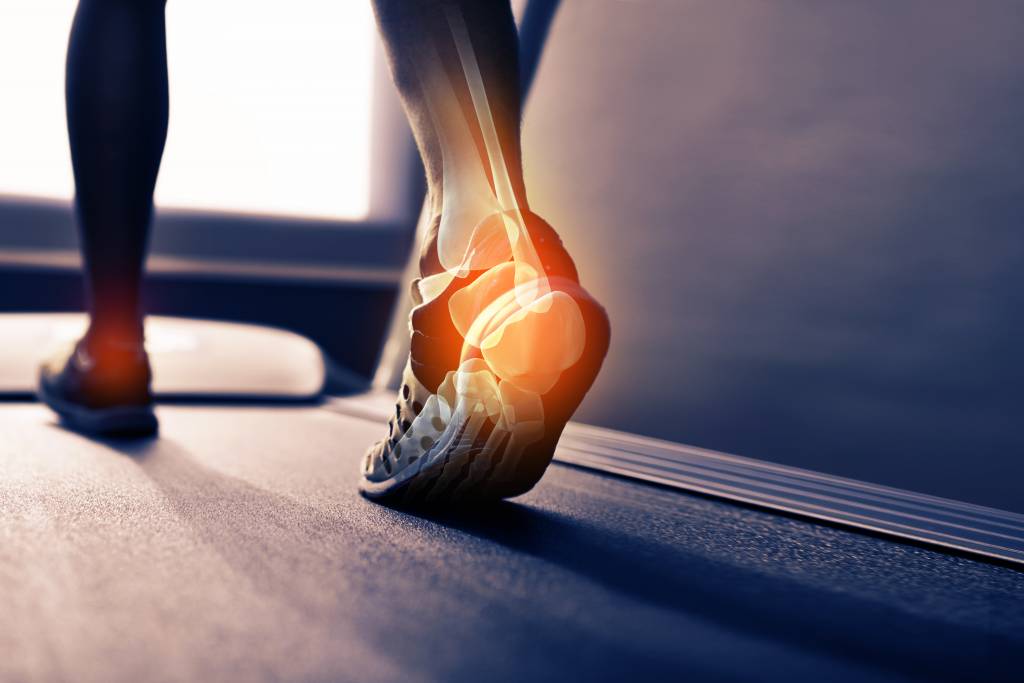For those who struggle with chronic joint pain or arthritis, pain management is an integral part of daily life. It’s estimated, WebMD¹ reports, that more than 100 million people in the U.S. currently suffer from chronic joint pain or arthritis – and those millions of people are seeking new pain relief options.
Often, joint pain sufferers turn to prescription drugs, thinking there are no other options. However, prescription drugs can be harmful, and that’s why more people with joint pain are seeking natural alternative methods to effectively manage their joint pain. Here are seven natural options for joint pain and arthritis.
 1. Lose Weight
1. Lose Weight
Losing weight is the number one way to reduce joint pain. The reason for this is simple: the more you weigh, the more pressure your joints have to support, which leads to pain and discomfort. This is especially true for your feet, hips, and knees. Some of this pressure is mechanical in nature and can negatively affect joint movement and flexibility. Therefore, joints tend to operate more smoothly with less weight.
In addition to providing greater mobility, losing weight may also help prevent future damage to your joints. An added bonus to losing weight is that, when joints begin to work better and hurt less, people tend to become more active, further compounding the benefits.
2. Get More Exercise
Properly done, exercise can work like a miracle drug when it comes to reducing joint pain. This may sound like an oxymoron at first glance. After all, if your joints already hurt, exercising will only make them hurt more, right? Contrary to what many people think, exercising can significantly reduce joint pain according to the Centers for Disease Control and Prevention (CDC)².
Start small and work your way up to three to five exercise sessions per week with each session lasting between thirty and sixty minutes. If exercising is too painful when you first begin, you may want to try a low-impact exercise or an exercise that you can perform in water. If you experience pain while exercising, be sure to talk to your doctor about your increased pain.
3. Try Acupuncture
Acupuncture continues to gain credibility as a way to relieve chronic pain. Traditionally used in Chinese medicine, acupuncture involves the insertion of very fine stainless-steel needles into specific parts of the body. It’s commonly believed that acupuncture works by causing your body to release natural pain-fighting chemicals known as endorphins.
4. Use Meditation
Many medical professionals believe that a practice known as mindfulness-based stress reduction (MBSR) can relieve pain caused by arthritis, the Arthritis Foundation³ writes. The primary goal of meditation is to relax the body and mind. When a person experiences pain, it’s easy to focus solely on the pain. Yet this has a tendency to maximize and prolong it. Conversely, meditation can help a person concentrate on other things in lieu of that pain.
5. Get a Massage
Regularly massaging arthritic joints can reduce pain and improve the flexibility and motion range of joints. If you want to investigate the possibility of massage therapy, you may want to ask a physical therapist to teach you the proper techniques. Massage can help reduce pain in various parts of the body, including the hands, back, and neck, regardless of whether the massage is self-administered or performed by a professional massage therapist.
6. Consider Herbal Supplements
Another way to naturally manage pain is through the use of herbal supplements. Supplements believed to reduce pain for those who have rheumatoid arthritis (RA) or osteoarthritis (OA) include the following, Healthline⁴ reports:
- Cayenne pepper (Capsicum)
- Cat’s claw (Uncaria tomentosa)
- Evening primrose (Onagraceae)
- Fish oil
- Turmeric (Curcuma longa)
- Ginger (Zingiber officinale)
- Green tea extract
Before taking supplements, it’s smart to talk to your doctor so you have a full understanding of what the supplements will do.
7. Search for Cutting Edge Treatment Options
The above list of natural remedies is not exhaustive. Other options exist, plus, new discoveries are being made every year. If you suffer from arthritis or joint pain, you owe it to yourself to perform your own research and find the best options that will work for you and complement your lifestyle. With the rate at which science and medicine progress, it’s important to know the latest options and natural methods of easing your pain so you and your joints can work towards finding relief.
Like anything, it’s always a good idea to be aware of the latest research. We recommend comparing at least 3 or 4 options before making a final decision. Doing a search online is typically the quickest, most thorough way to discover all the pros and cons you need to keep in mind.


